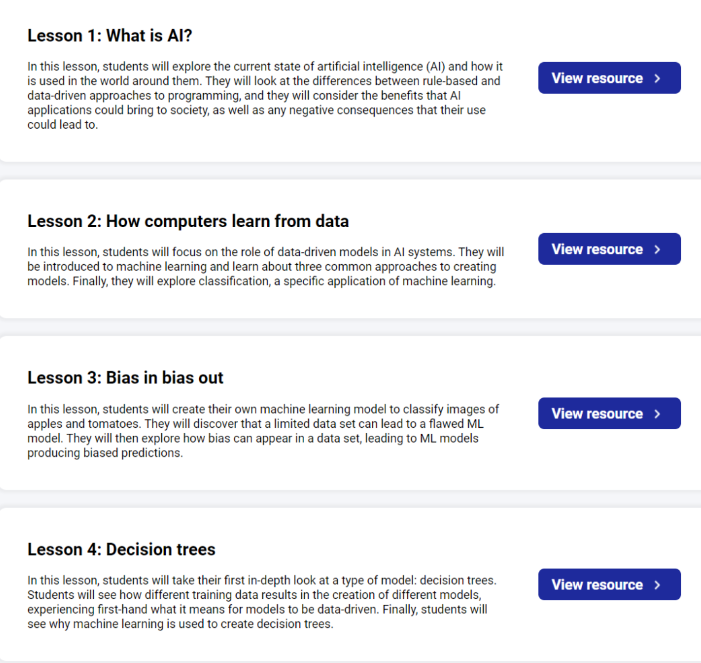Google and Microsoft Join Forces to Drive the Future of AI: Launch Beginner-Friendly Introductory Courses
-
Recently, Google and Microsoft have extended their AI arms race into the education sector by releasing introductory AI courses for beginners. This signifies that artificial intelligence is not just a competition in the tech field but also a key focus in educating the next generation of scientists, thinkers, and AI leaders.
First, Google partnered with the Raspberry Pi Foundation to launch a course called "Experience AI," targeting students aged 11-14. The course starts with fundamental AI concepts and guides students through hands-on case studies and interactive teaching methods. It covers various aspects, from model classification to understanding dataset biases, aiming to provide students with a solid foundation in artificial intelligence.

In contrast, Microsoft quickly introduced the "Generative AI for Beginners" course, diving directly into the field of generative AI. The course includes over a dozen detailed tutorials, ranging from setting up the environment to various applications of generative AI, even featuring a GitHub code repository. Microsoft's course offers beginners a comprehensive and in-depth learning experience, striving to help students grasp the fundamentals of building generative AI applications.
The initiatives from these two tech giants jointly convey a message: AI education has become a crucial means to drive social, economic, and scientific transformation. Google stated that their goal is to ensure as many people as possible benefit from AI technology, nurturing the next generation of diverse thinkers and leaders to address societal needs.
With the launch of these introductory courses, the concept of 'starting AI education from childhood' has been further reinforced. The course designs by Google and Microsoft aim to provide students with a comprehensive AI learning experience through interactive lessons, real-world case studies, and detailed tutorials. This not only helps students develop an interest in AI at a young age but also cultivates more potential professionals for future technological advancements. Ultimately, these efforts may become a key component in promoting the broader application of AI technology.
